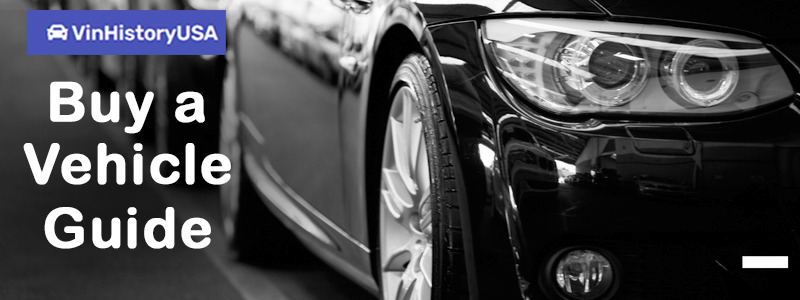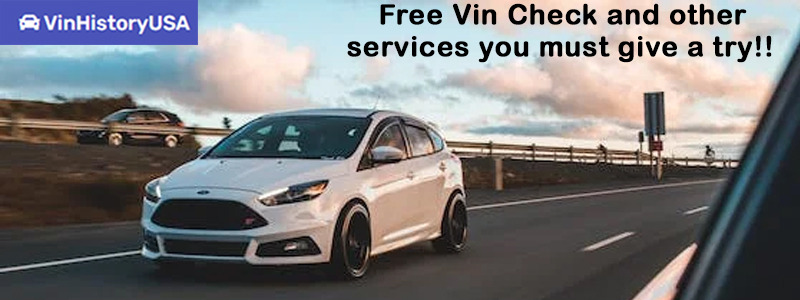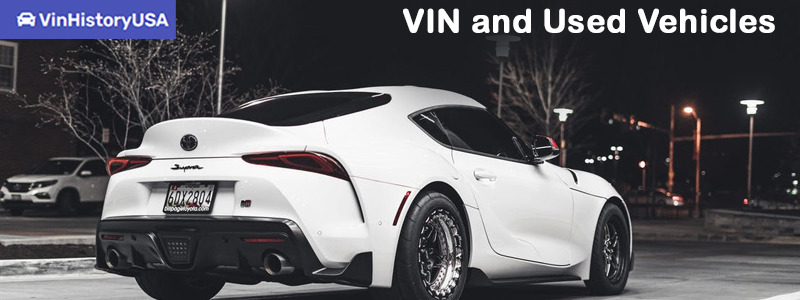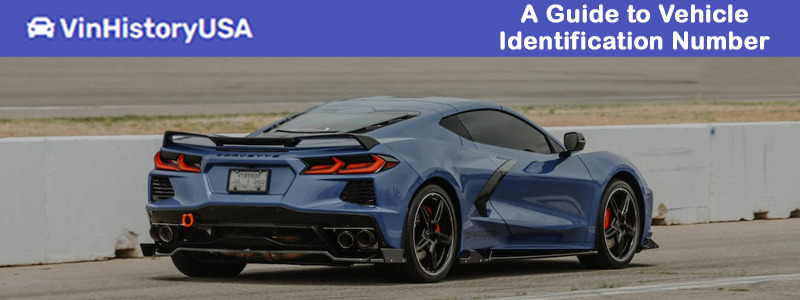VIN basic
The first VIN was issued in 1954. Throughout the years, VINs could be found in various designs based on the particular automaker. Modern techniques can’t identify automobiles made in the 1950s up to 1980. Instead, you’ll need to connect with the Department of Motor Vehicles or get in touch with the automaker directly.
In 1981 The National Highway Traffic Safety Administration required that every vehicle from that point onwards carry a standard 17-digit number for identification of vehicles.
Typically, the identification number is stamped on an aluminum plate positioned on the dashboard, near the windshield, or in the driver’s doorjamb. The number is also printed on the firewall of the engine.
The latest seventeen-digit VINs allow access to the vehicle’s history report, which could reveal numerous records relating to a car, including the owner, repair, and accident records.
Additionally, car owners and shoppers of used cars can enter the VIN on the national highway traffic safety administration’s VIN search tool to determine whether there are any recalls open for a car.
Encode the VIN
Like many people, you may think that a vehicle identification code (VIN) is simply a random set of characters. In reality, every character in this highly structured code has a different meaning. Decoding the codes is a pastime for some car enthusiasts, such as collectors who would like to have one of the first or last cars that come from the assembly line.
If you’re looking to purchase a used car, you should get the vehicle’s historical report (VHR) or a VIN check. Understanding how to interpret the VIN will aid you in making an informed decision before purchasing.
Important specifications, but these numbers are also helpful for less fun but important purposes involving registration, title, and insurance. Be sure to verify the VIN when buying spare parts or replacements for your car. Car parts are typically made for certain VINs and may not work with your vehicle if you consider the year, model, and year of manufacture.
Free Vin Owner Lookup
It doesn’t matter if you’re looking for an old-fashioned car or a newer crossover. Purchasing an automobile can be an expensive and risky investment. If you are still looking for the owner registered to the car for free but spending a tiny amount for a search of the owner’s name could prevent you from making a serious financial mistake. This VIN owner lookup provides the vehicle’s complete history, includings past owners and insurance claims.
Search for Vehicle Owner
Each vehicle is identified by its unique vehicle Identification Number (VIN). The 17-character alphanumeric code reveals details regarding the make and model in addition to the location where it was made and what equipment was put in place on the vehicle in the factory. A simple VIN decoder will provide this information in a nutshell; however, there’s much more information to be learned from this code.
Because each VIN has a unique code, it is utilized to locate the car in official public records. This involves registering the vehicle at the Department of Motor Vehicles, making sure it’s insured, keeping track of recalls, and preparing theft and accident reports. The VIN history report is a pull from databases that contain all the information needed, giving complete information about the car’s history, beginning with the day it left the production line to today. This includes locating the car’s owner via VIN and also financial transactions, insurance, and government associated with the vehicle. This can help establish the authenticity of the vehicle and also uncovers issues that you would like to avoid, such as damaged or hidden from accident and non-paid liens.
Does a VIN identify the registered owner of a vehicle?
If you only look up the VIN, it is not possible to be able to learn about the car’s history at the time it left the factory. If you use our tool for locating the owner of the vehicle, it is possible to find documents linked to the VIN and provide the background of the vehicle and all the owners who registered it before the initial sale.
Vin Check USA
There are occasions when you need to look up the car’s VIN because a number of data registries are utilized to track the car’s past. If you’re looking to purchase aa used vehicle, you can conduct a VIN search to obtain the vehicle’s history and locate records of past owners, accidents, and repairs. You can also determine whether the manufacturer has ever issued a recall for the vehicle and if repairs were done. In addition, police departments conduct the VIN search to locate vehicles that have been taken.









